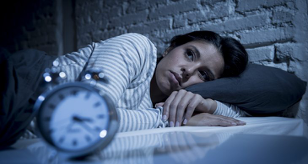
People in addiction recovery are no stranger to sleep disturbances and disorders. According to the Journal of Addiction Medicine, people in early recovery are five times more likely to experience insomnia than the general public. With addiction and withdrawal, comes a disruption in healthy sleep and a disturbance in the circadian rhythm, the body’s internal regulator of the sleep-wake cycle.
In turn, sleep deprivation can hinder the recovery process and have a negative effect on one’s mood and emotional well-being. Studies also show that a persistent difficulty in sleep during recovery is associated with relapse. In lieu of medication-assisted treatment to sleep disorders, there are many lifestyle and behavioral changes one can make to help them sleep better while in recovery.
Our Circadian Rhythm greatly depends on the light-dark cycle. In darkness, the brain promotes the Pineal Gland to produce Melatonin, a hormone which helps regulate sleep. Conversely, in light, both natural and artificial, the production of Melatonin is constricted. Controlling one’s exposure to light can dramatically improve sleep quality. This can be done by dimming the lights in the bedroom when preparing for bed, using light blocking window curtains and also turning off electronic screens which emit blue light.
Physical exercise also plays an important role in regulating the Circadian Rhythm. Studies have shown that exercise, performed at least 3-4 hours before bed, can help reduce stress and help provide undisrupted sleep. It is also important to create and maintain a routine before bed in order to promote healthy sleep habits. Try to go bed to bed around the same time every night and try not to use the bed or bedroom for other activities aside from relaxation and sleep.
